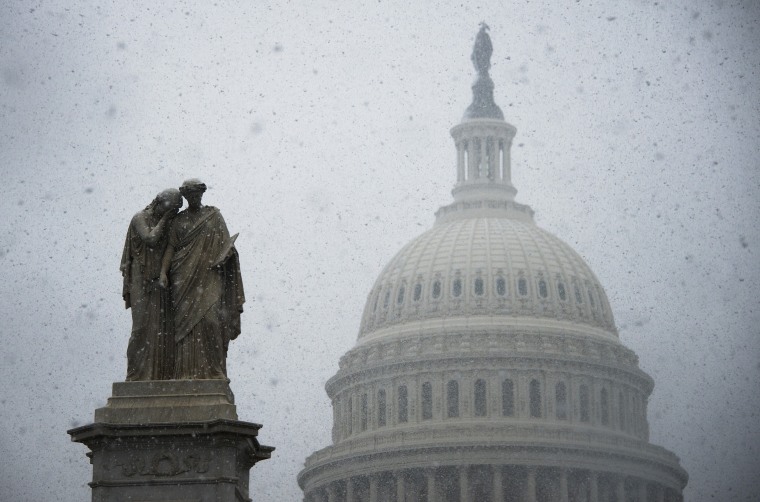As if there weren't enough going on in the nation's capital, there's a looming deadline this week to fund the government. Without passing some kind of spending bill by midnight on Friday, we'd see the latest in a series of government shutdown.
By all appearances, that outcome now appears unlikely, and a massive new spending package is taking shape. But as is always the case with these kinds of bills, members are cutting deals of varying sizes and significance, throwing all sorts of provisions into the broader bill.
Politico reported yesterday, for example, on some significant new changes to health care taxes.
Congress is expected to permanently repeal three major health industry taxes that were supposed to help pay for Obamacare in a final year-end spending agreement, in a big win for the health care industry.Lawmakers have agreed to ax the Cadillac tax on pricey employer plans, a 2.3 percent tax on medical devices and a health insurance fee, four individuals familiar with the talks confirmed to POLITICO on Monday.
The excise tax on high-cost health plans -- generally known as the "Cadillac tax" -- is one of those unpopular ideas that wonks love because it's based on sound policymaking. It wasn't yet implemented, though, and now it never will be.
How do lawmakers intend to offset the costs of scrapping these taxes, each of which were expected to bring in considerable amounts of revenue? No one has any idea. By all appearances, they'll just add the costs to the deficit.
And while I can appreciate why no one's ever characterized health care tax policy as "click bait," let's not brush past these developments too quickly. During the fight over the Affordable Care Act in 2009 and 2010, many of its critics on the right demanded that every penny of "Obamacare" be fully paid for. Democrats took the challenge seriously, made difficult and politically unpopular trade-offs, and after months of work, embraced a series of measures designed to address systemic costs and not add to the deficit.
Those measures, of course, included policies such as the individual mandate and revenue drives such as the "Cadillac tax" and the medical-device tax. A decade later, those Democratic efforts now appear to have served no purpose: Congress has left the spending in place, but it's also chipped away at the policies designed to pay for the reform law.
Looking ahead, as both parties eye significant health care changes, this approach portends trouble.
Paul Waldman had a good piece along these lines yesterday, reflecting on "the awesome lobbying power wielded by the health-care industry."
[I]f you think it's working hard now, just wait until it's confronted with a Democratic president attempting to enact dramatic insurance reform. Insurers and hospitals and drug companies don't always have the same interests, but they all hate the prospect of reform that could cut into their profits.And they have virtually limitless resources to spend on killing that reform. The industry pulls in hundreds of billions of dollars every year; health care now accounts for nearly one-fifth of our gross domestic product. If necessary, it could spend hundreds of millions or even billions of dollars on the effort, as it faces off against earnest liberal nonprofits dutifully issuing carefully researched policy papers.
Watch this space.
